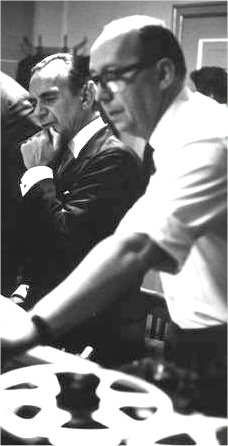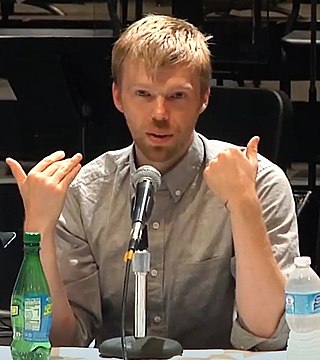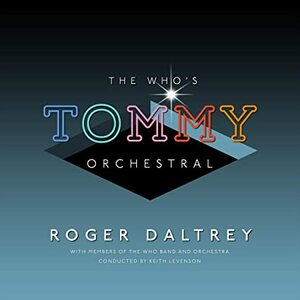The 20th Annual Grammy Awards were held February 23, 1978, and were broadcast live on American television. They were hosted by John Denver and recognized accomplishments by musicians from the year 1977.
The 21st Annual Grammy Awards were held in 1979, and were broadcast live on American television. They recognized accomplishments by musicians from the year 1978.
The 16th Annual Grammy Awards were held March 2, 1974, and were broadcast live on American television. They recognised accomplishments by musicians from the year 1973.
The 37th Annual Grammy Awards were presented on March 1, 1995, at Shrine Auditorium, Los Angeles. They recognized accomplishments by musicians from the previous year. Bruce Springsteen was the night's biggest winner with 4 awards, including Song of the Year while opening the show with his Grammy nominated hit.
The 28th Annual Grammy Awards were held on February 25, 1986, at Shrine Auditorium, Los Angeles. They recognized accomplishments by musicians from the previous year, 1985. The night's big winner was USA for Africa's "We Are the World", which won four awards, including Song of the Year which went to Michael Jackson and Lionel Richie. It marked the first time in their respective careers that they received the Song of the Year Award. For Richie, it was his sixth attempt in eight years. The other three awards for the latter single were given to the song's producer, Quincy Jones.
The 25th Annual Grammy Awards were held on February 23, 1983, at Shrine Auditorium, Los Angeles. They recognized accomplishments by musicians from the previous year.
The 27th Annual Grammy Awards were held on February 26, 1985, at Shrine Auditorium, Los Angeles, and were broadcast live in the United States by CBS. They recognized accomplishments by musicians from the year 1984.
The 3rd Annual Grammy Awards were held on April 12, 1961, at Los Angeles and New York. They recognized musical accomplishments by the performers for the year 1960. Ray Charles won four awards and Bob Newhart and Henry Mancini each won three awards.
The 23rd Annual Grammy Awards were held on February 25, 1981, at Radio City Music Hall in New York City and were broadcast live on American television. They recognized accomplishments by musicians from the year 1980.
The 24th Annual Grammy Awards were held on February 24, 1982, at the Shrine Auditorium in Los Angeles, and were broadcast live on American television. The event recognized the accomplishments of musicians during the year 1981. Quincy Jones was the major recipient of awards with a total of five Grammys.
The 26th Annual Grammy Awards were held on February 28, 1984, at Shrine Auditorium, Los Angeles, and were broadcast live on American television. They recognized accomplishments by musicians from the year 1983. Michael Jackson, who had been recovering from scalp burns sustained due to an accident that occurred during the filming of a Pepsi commercial, won a record eight awards during the show. It is notable for garnering the largest Grammy Award television audience ever with 51.67 million viewers.
The 29th Annual Grammy Awards were held on February 24, 1987, at Shrine Auditorium, Los Angeles, California. They recognized accomplishments by musicians from the previous year.
Thomas Z. Shepard is an American record producer who is best known for his recordings of Broadway musicals, including the works of Stephen Sondheim. Shepard is also a composer, conductor, music arranger and pianist.

Kenneth Daniel Fuchs is a Grammy Award-winning American composer. He currently serves as Professor of Music Composition at the University of Connecticut in Storrs, Connecticut.
The Quintet in A minor for Piano and String Quartet, Op. 84 is a chamber work by Edward Elgar.

Kenneth Ernest Wilkinson was an audio engineer for Decca Records, known for engineering classical recordings with superb sound quality.

Historical classical music recordings are generally classical music recordings made prior to the stereo era of vinyl disc recording, which began around 1957.
X5 Music Group is a record label based in Stockholm, Sweden with a branch in Manhattan, New York. Founded in 2003, it is a digital-only label that primarily licenses pre-existing music for compilation albums. X5 originally focused on classical music, and in 2011 its custom album The Greatest Video Game Music, featuring the London Philharmonic Orchestra, debuted at #23 on the Billboard 200. Since 2009 the company has had 24 albums on the chart; all 24 were custom digital releases produced by the label.

Andrew Norman is an American composer of contemporary classical music whose texturally complex music is influenced by architecture and the visual arts.

The Who's Tommy Orchestral is a live album by English rock singer Roger Daltrey, performing The Who's 1969 album Tommy alongside members of The Who touring band and a symphony orchestra conducted by Keith Levenson. It was recorded in July 2018 in Bethel, New York, at the site of the original Woodstock festival, during a US tour of the concert. Later, in February 2019, Levenson directed and recorded the Budapest Scoring Orchestra in Budapest with new arrangements from David Campbell, to add a new orchestral backing to the album.




